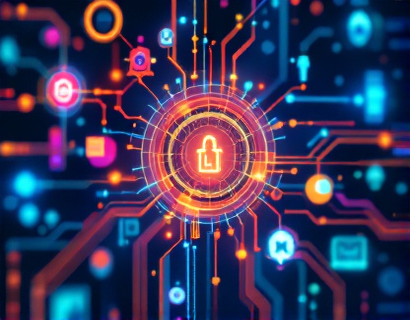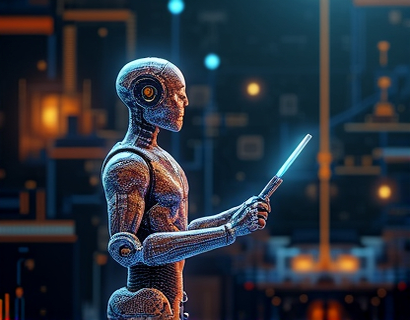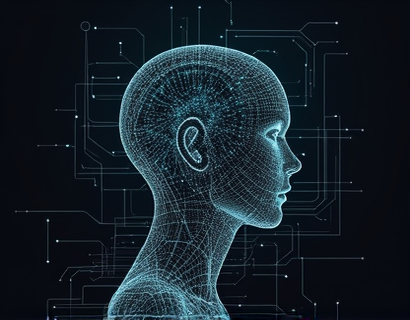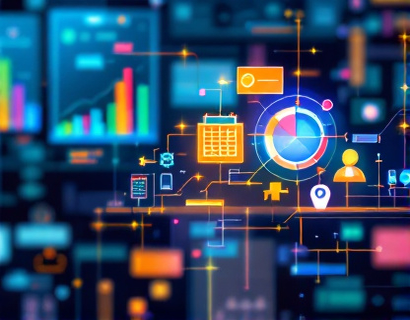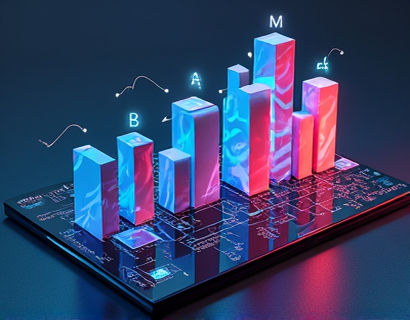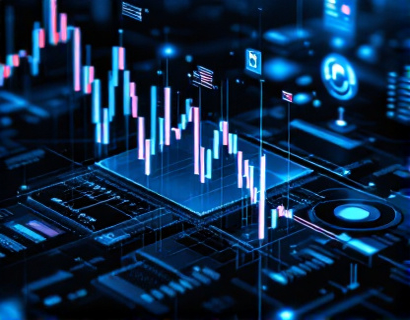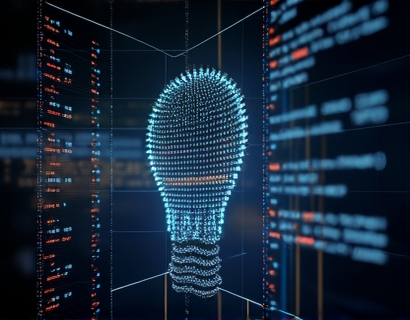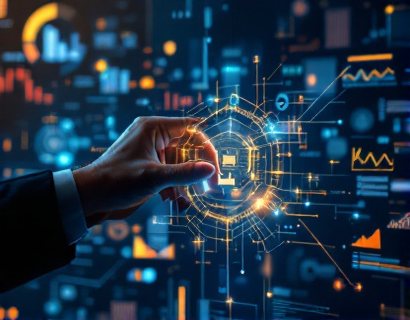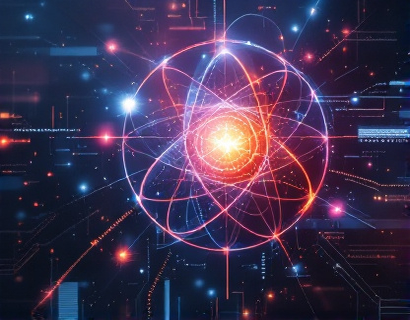Harnessing AI and Blockchain: Transforming Digital Experiences with Advanced Tech-Solutions
The integration of Artificial Intelligence (AI) and Blockchain technology is revolutionizing the digital landscape, offering unprecedented opportunities for businesses to enhance their operations, secure their data, and innovate their services. This article delves into the synergy between these two cutting-edge technologies, exploring how their combination can drive efficiency, security, and innovation, providing a competitive edge in the rapidly evolving digital world.
Understanding AI and Blockchain
Artificial Intelligence, a branch of computer science, focuses on creating systems that can perform tasks requiring human intelligence, such as learning, reasoning, and problem-solving. AI encompasses various subfields, including machine learning, natural language processing, and computer vision. On the other hand, Blockchain is a decentralized digital ledger technology that ensures transparency, security, and immutability in transactions. It is the backbone of cryptocurrencies like Bitcoin but extends far beyond, finding applications in supply chain management, healthcare, and more.
The Synergy of AI and Blockchain
The true power of AI and Blockchain emerges when they are combined. AI can process and analyze vast amounts of data stored on a Blockchain, extracting valuable insights and patterns that would be impossible for humans to discern manually. Conversely, Blockchain provides a secure and transparent environment for AI algorithms to operate, ensuring data integrity and trust in the outcomes. This synergy opens up new possibilities for businesses to create smarter, more secure, and more efficient digital experiences.
Enhancing Business Operations
One of the primary ways AI and Blockchain can transform business operations is through supply chain optimization. By integrating AI with Blockchain, companies can achieve real-time tracking and monitoring of goods as they move through the supply chain. AI algorithms can analyze data from various sources, predict potential bottlenecks, and optimize routes and inventory levels. Blockchain ensures that all transactions and movements are recorded transparently and immutably, reducing fraud and errors. This combination leads to increased efficiency, reduced costs, and improved customer satisfaction.
Another area where AI and Blockchain can make a significant impact is in contract management. Smart contracts, self-executing contracts with the terms directly written into code, can be enhanced with AI to automate complex decision-making processes. AI can analyze conditions and predict outcomes, ensuring that smart contracts are executed accurately and efficiently. This reduces the need for intermediaries, speeds up processes, and minimizes the risk of disputes.
Securing Digital Transactions
Security is a paramount concern in the digital age, and the combination of AI and Blockchain offers robust solutions. Blockchain's inherent security features, such as cryptographic hashing and decentralized consensus mechanisms, make it highly resistant to tampering and cyber attacks. AI can further enhance security by detecting and mitigating threats in real-time. Machine learning algorithms can analyze patterns and identify anomalies, predicting and preventing potential security breaches before they occur. This proactive approach to security ensures that digital transactions are not only secure but also trustworthy.
Identity verification is another critical aspect of digital security. AI-powered identity management systems can integrate with Blockchain to create secure and decentralized identity solutions. Users can control their personal data and share it selectively, reducing the risk of identity theft and fraud. Blockchain ensures that identity records are immutable and verifiable, while AI can streamline the verification process, making it faster and more accurate.
Innovating Financial Services
The financial sector stands to gain immensely from the fusion of AI and Blockchain. Traditional banking systems are often slow, expensive, and prone to errors. By leveraging AI and Blockchain, financial institutions can create more efficient, transparent, and accessible services. For instance, AI can analyze vast amounts of financial data to provide personalized investment advice and detect fraudulent activities. Blockchain can facilitate faster and cheaper cross-border transactions, eliminate the need for intermediaries, and ensure that all transactions are recorded transparently.
Decentralized Finance (DeFi) is a rapidly growing field that exemplifies the potential of AI and Blockchain. DeFi platforms use smart contracts and decentralized protocols to offer a wide range of financial services, from lending and borrowing to trading and insurance. AI can enhance these services by providing predictive analytics, risk assessment, and automated trading strategies. This not only improves the user experience but also opens up new opportunities for financial inclusion, allowing individuals in underserved regions to access financial services.
Transforming Healthcare
Healthcare is another sector where AI and Blockchain can drive significant advancements. Patient data management is a critical challenge in healthcare, with issues related to data privacy, interoperability, and security. Blockchain can provide a secure and decentralized platform for storing and sharing patient data, ensuring that it is tamper-proof and accessible only to authorized parties. AI can analyze this data to identify patterns, predict disease outbreaks, and personalize treatment plans.
Clinical trials can also benefit from the combination of AI and Blockchain. AI can streamline the recruitment process by identifying suitable candidates based on specific criteria, while Blockchain can ensure the integrity and traceability of trial data. This reduces the risk of data manipulation and enhances the credibility of trial results. Additionally, AI can monitor and analyze trial data in real-time, providing insights that can accelerate the development of new treatments and drugs.
Enhancing Customer Experiences
In the realm of customer experience, AI and Blockchain can create more personalized, secure, and seamless interactions. AI-powered chatbots and virtual assistants can provide 24/7 customer support, handling queries and resolving issues efficiently. These AI systems can be integrated with Blockchain to ensure that customer data is secure and that interactions are transparent and verifiable. This builds trust and enhances customer loyalty.
Personalized recommendations are another area where AI can excel. By analyzing user behavior and preferences, AI algorithms can suggest products and services that are most relevant to each customer. Blockchain can ensure that these recommendations are based on authentic and secure data, preventing manipulation and enhancing the accuracy of suggestions. This leads to a more satisfying customer experience and higher conversion rates.
Challenges and Considerations
While the potential benefits of AI and Blockchain are substantial, there are also challenges and considerations that need to be addressed. One of the primary challenges is the technical complexity of integrating these technologies. Businesses must invest in skilled personnel and infrastructure to develop and maintain AI and Blockchain solutions. Additionally, regulatory frameworks are still evolving, and compliance can be a hurdle. Ensuring data privacy and security, while adhering to regulations like GDPR, is crucial.
Another consideration is the energy consumption associated with Blockchain, particularly Proof of Work (PoW) consensus mechanisms. While PoS and other consensus algorithms are more energy-efficient, the environmental impact remains a concern. Businesses should explore sustainable practices and consider the long-term implications of their technology choices.
Future Outlook
The future of AI and Blockchain is bright, with continuous advancements promising even greater synergies and applications. As AI algorithms become more sophisticated, their ability to process and derive insights from Blockchain data will improve, leading to more intelligent and autonomous systems. The development of interoperable Blockchain platforms will facilitate broader adoption and integration across different industries. Additionally, the rise of edge computing will enable AI to process data closer to the source, reducing latency and enhancing real-time decision-making.
In conclusion, the fusion of AI and Blockchain is a powerful force that can transform digital experiences, driving efficiency, security, and innovation. By embracing these technologies, businesses can gain a competitive edge, optimize operations, and create value in ways that were previously unimaginable. As the digital landscape continues to evolve, the synergy between AI and Blockchain will play a pivotal role in shaping the future of technology and business.



